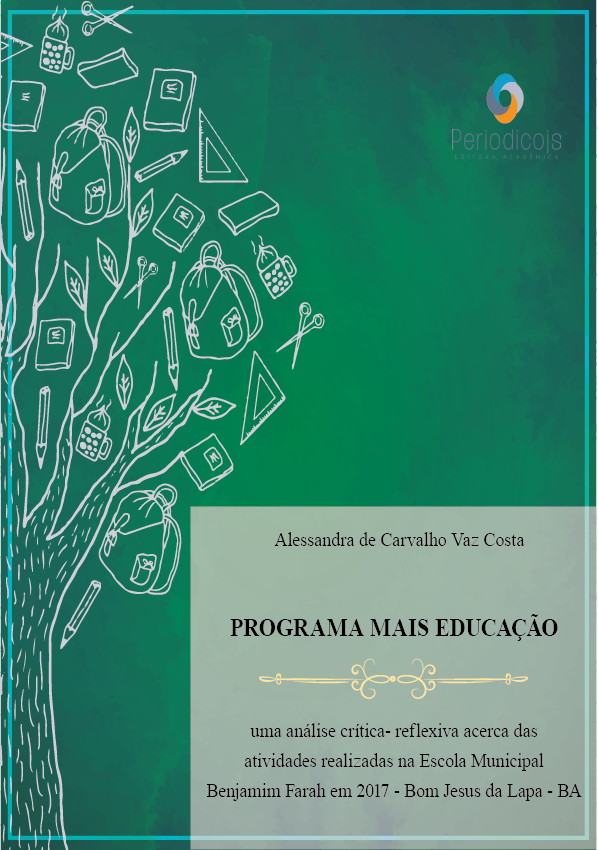Abstract
The present text named “More Education Program: a critical-reflective analysis about the activities carried out at the Benjamim Farah Municipal School in 2017 / Bom Jesus da Lapa-Ba”, is the result of research developed at the FICS - Inter-American Faculty of Social Sciences of the Program. Graduate in the Master of Science in Education - which has as its general objective to critically and reflexively analyze the More Education Program, about the activities carried out at Benjamim Farah Municipal School in Bom Jesus da Lapa - BA. As specific objectives, it is prepared to: 1) Inquire the theoretical-methodological conception of the More Education Program; 2) Identify the situation of the educational space and care in relation to the provision of activities of the More Education Program in the researched school; 3) Demonstrate how the More Education Program has adapted its functionality with the counter shift according to the actual conditions of the municipal school involved in the project; and 4) Dialogue with the actors of the More Education Program who work in the municipal context of educational public policies aimed at raising the quality of education in the municipality of Bom Jesus da Lapa. As a conducting method of this research, we adopted the qualitative methodology, which engages in the analysis of historical, hybrid, complex and antagonistic social phenomena that produce the most diverse social transformations. A priori, we will use bibliographic sources in articles, texts and books to collect the necessary information and elaborate the guiding data of the research, as basic elements that historicize the context of the More Education Program and the struggle for the realization of this modality as a public policy. which will enable the expansion of knowledge in line with what is prescribed. The results of the research reveal that the way the More Education Program was implemented in the researched school needs adjustments to effectively serve the learners with quality and materialize the actions significantly. In this paper, we point out ways in which we believe that the SME can contribute to emancipation, because we believe that the transformation of this situation in which the learners find themselves can only be effected with the change of educational public policies and a more humanistic and holistic view.





